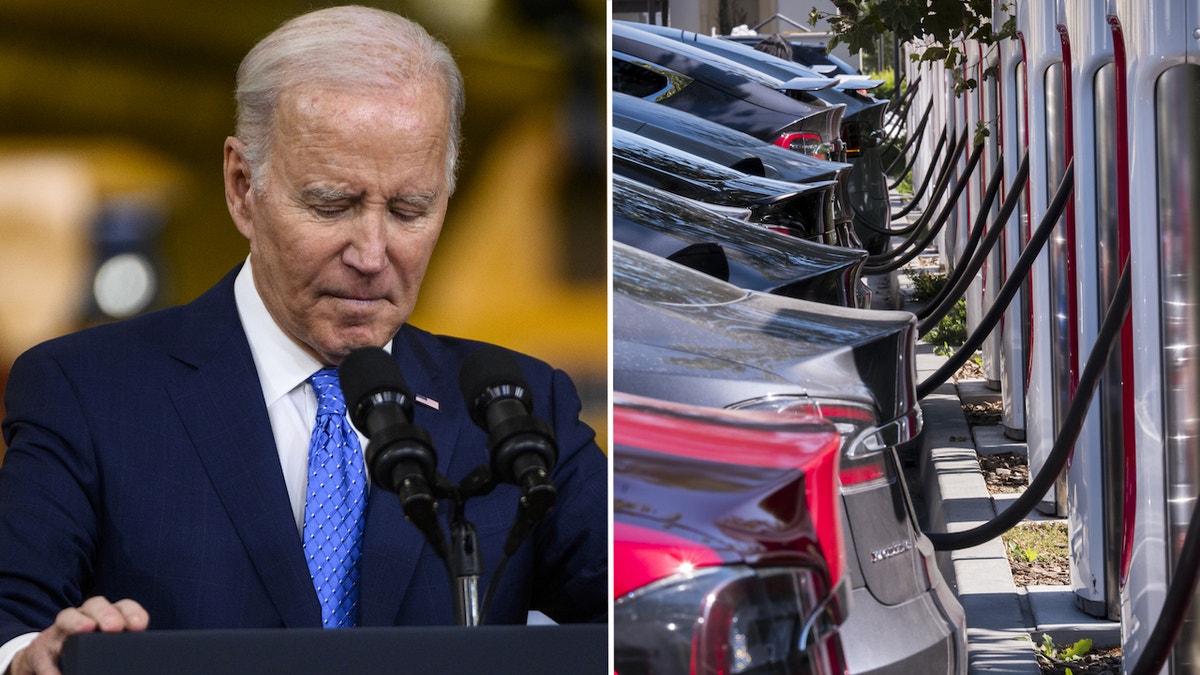EV Mandate Fight: Car Dealerships Renew Their Resistance

Table of Contents
Economic Concerns Fueling Dealer Opposition
Dealerships are raising significant economic concerns regarding the mandated shift to electric vehicles. These concerns are impacting their bottom line and threatening their long-term viability.
Profitability Challenges
Dealerships express serious concerns about the profitability of EVs compared to gasoline-powered vehicles. The higher upfront costs of EVs, coupled with potentially lower profit margins per sale, present a significant challenge. Furthermore, the need for substantial infrastructure investments – including charging stations and specialized EV technicians – adds another layer of financial strain.
- Lower service revenue: EVs require less frequent maintenance than gasoline cars, leading to a reduction in service revenue for dealerships.
- Increased inventory costs: Higher EV prices mean increased capital tied up in inventory, impacting cash flow.
- Uncertainty regarding future demand: The fluctuating market for EVs and rapid technological changes create uncertainty about future demand and long-term profitability.
- Lack of government support: Dealerships argue that government support for EV infrastructure upgrades and financial assistance is insufficient.
Inventory Management Hurdles
Managing EV inventory presents unique challenges for dealerships. Balancing EV stock with the continued demand for gasoline vehicles creates logistical nightmares and potential storage issues.
- Limited EV model choices: The current limited selection of EV models compared to gasoline vehicles restricts customer choices and may limit sales.
- Longer lead times: EV deliveries often take longer than gasoline vehicle deliveries, making inventory planning more complex and potentially leading to stock-outs.
- Specialized storage: EVs require specialized storage and handling, including charging requirements, adding to operational costs.
- Sales forecasting difficulties: Predicting future EV sales remains challenging due to market uncertainties and evolving consumer preferences.
Training and Infrastructure Demands
The transition to EVs requires significant investments in training and infrastructure, placing a substantial burden on dealerships.
Specialized Technician Training
The complexity of EVs demands specialized training for technicians. Dealerships argue that the cost of training their staff to diagnose and repair these vehicles is substantial and isn't adequately compensated for by current incentives.
- High training costs: EV technician training programs are expensive and require significant time commitment.
- Technician shortage: There is a shortage of qualified EV technicians, making it difficult for dealerships to find and retain skilled personnel.
- Ongoing training needs: Rapid technological advancements in EV technology necessitate continuous training to keep up with the latest developments.
Charging Infrastructure Investment
Dealerships argue that the mandate unfairly burdens them with the cost of installing and maintaining extensive charging infrastructure, a cost that doesn't always translate directly into increased EV sales.
- High upfront costs: Installing EV charging stations requires a significant upfront capital investment.
- Ongoing maintenance: Charging infrastructure requires ongoing maintenance and potential repairs, adding to operational costs.
- Limited government incentives: Dealerships report limited or inadequate government incentives for installing dealership charging stations.
Consumer Demand and Market Readiness
Dealerships question the assumptions underlying EV mandates, arguing that current consumer demand doesn't justify the aggressive targets.
Consumer Adoption Rates
Dealerships highlight several factors that hinder widespread consumer adoption of EVs, impacting their ability to meet mandated sales quotas.
- Range anxiety: Concerns about EV range and the availability of charging infrastructure remain significant barriers for many potential buyers.
- High purchase prices: EVs typically have higher purchase prices than comparable gasoline vehicles, making them inaccessible to some consumers.
- Limited model selection: The limited variety of EV models available currently may not meet the diverse needs and preferences of all consumers.
The Role of Government Incentives
Dealerships advocate for more robust government support to stimulate EV adoption and ease the transition for the industry.
- Increased consumer incentives: More generous tax credits and rebates are needed to make EVs more affordable and attractive to consumers.
- Streamlined regulations: Simpler and more predictable regulations regarding EV sales and infrastructure would reduce uncertainty and promote investment.
- Public awareness campaigns: Increased public awareness campaigns are necessary to address consumer concerns and promote the benefits of EVs.
Conclusion
The "EV Mandate Fight" underscores the complex challenges facing car dealerships in the transition to electric vehicles. While the push for EVs is essential for environmental sustainability, policymakers must acknowledge the economic realities and practical concerns of dealerships. Addressing issues related to profitability, training, infrastructure, and consumer demand is crucial for a smooth and successful transition. Finding a balance between environmental goals and economic realities is key to navigating this ongoing EV mandate fight. Let's work collaboratively to find solutions that address the concerns around the EV mandate fight and build a sustainable and thriving EV market.

Featured Posts
-
 Is Parker Mc Collum The New George Strait Comparing Their Styles And Success
May 14, 2025
Is Parker Mc Collum The New George Strait Comparing Their Styles And Success
May 14, 2025 -
 Exclusive Navans Upcoming Us Ipo And Its Implications For The Travel Tech Industry
May 14, 2025
Exclusive Navans Upcoming Us Ipo And Its Implications For The Travel Tech Industry
May 14, 2025 -
 Jobe Bellingham Transfer Fee What Chelsea And Tottenham Must Pay
May 14, 2025
Jobe Bellingham Transfer Fee What Chelsea And Tottenham Must Pay
May 14, 2025 -
 Bell Challenges Wholesale Fibre Policy A Call For Federal Action
May 14, 2025
Bell Challenges Wholesale Fibre Policy A Call For Federal Action
May 14, 2025 -
 The Optimal Times To Issue An Intentional Walk To Aaron Judge
May 14, 2025
The Optimal Times To Issue An Intentional Walk To Aaron Judge
May 14, 2025
Latest Posts
-
 Povratak Ro Era Federera Njegove Rechi O Publitsi I Stadionima
May 14, 2025
Povratak Ro Era Federera Njegove Rechi O Publitsi I Stadionima
May 14, 2025 -
 Federer Se Vra A Iz Ava O Zhelji Za Punim Stadionima
May 14, 2025
Federer Se Vra A Iz Ava O Zhelji Za Punim Stadionima
May 14, 2025 -
 24 Hours Of Le Mans Roger Federers Honorary Start
May 14, 2025
24 Hours Of Le Mans Roger Federers Honorary Start
May 14, 2025 -
 Sevilla Fc Caparros Sustituye A Garcia Pimienta En El Cargo De Entrenador
May 14, 2025
Sevilla Fc Caparros Sustituye A Garcia Pimienta En El Cargo De Entrenador
May 14, 2025 -
 Federers Honorary Role At The Le Mans Race
May 14, 2025
Federers Honorary Role At The Le Mans Race
May 14, 2025
